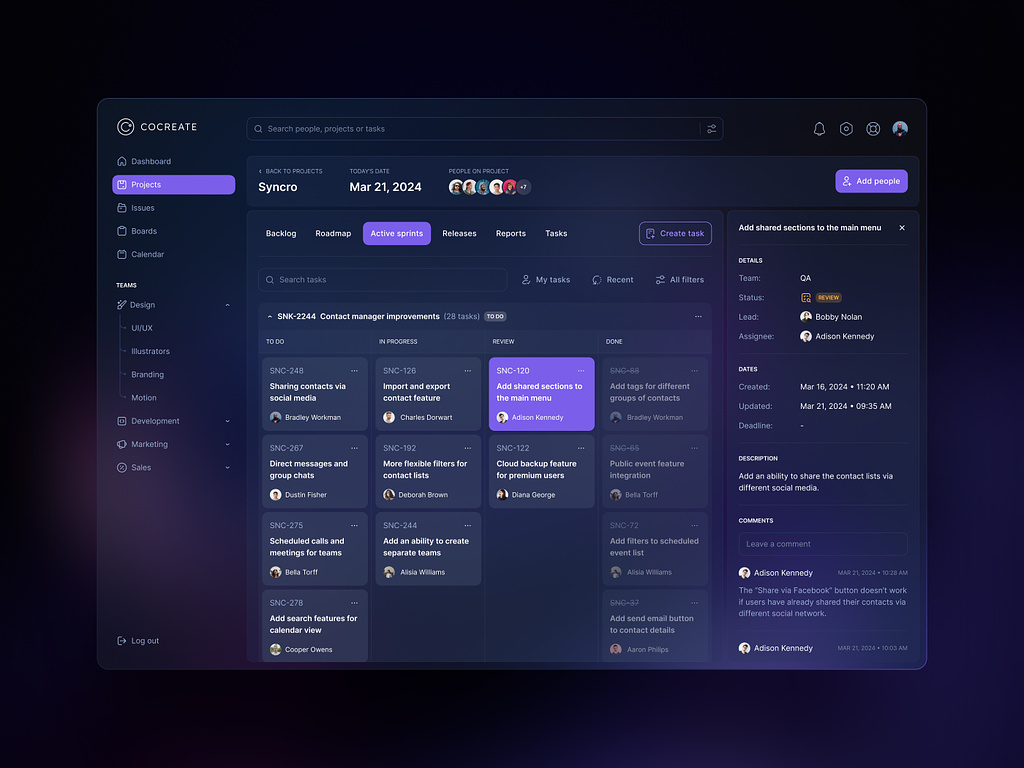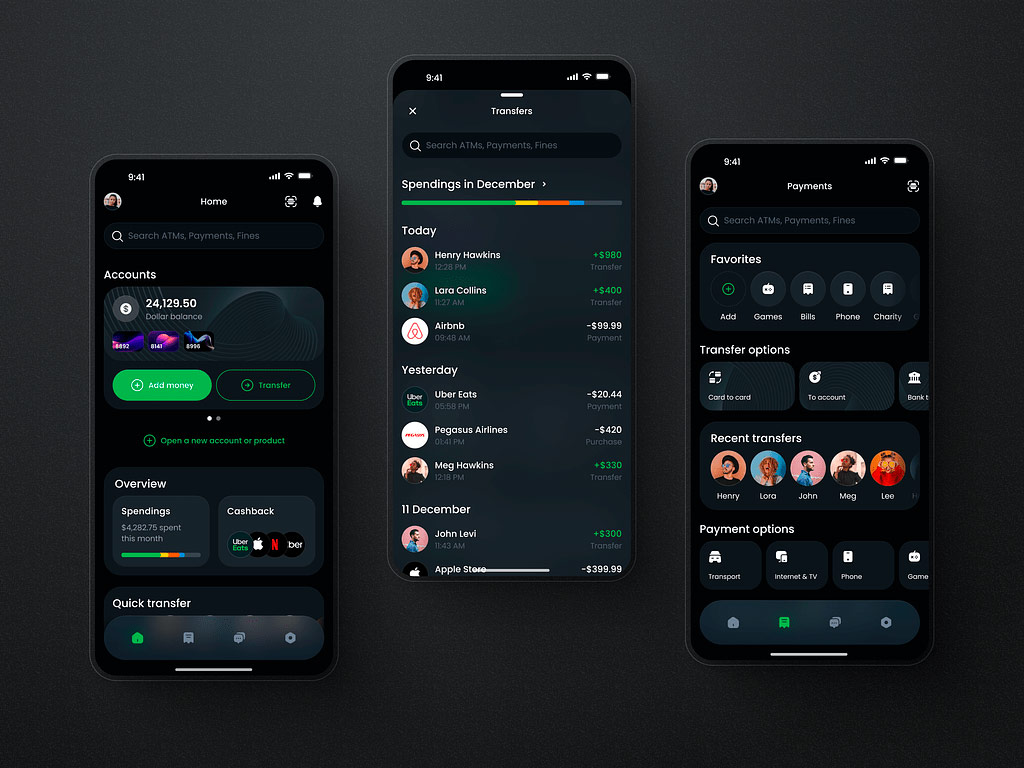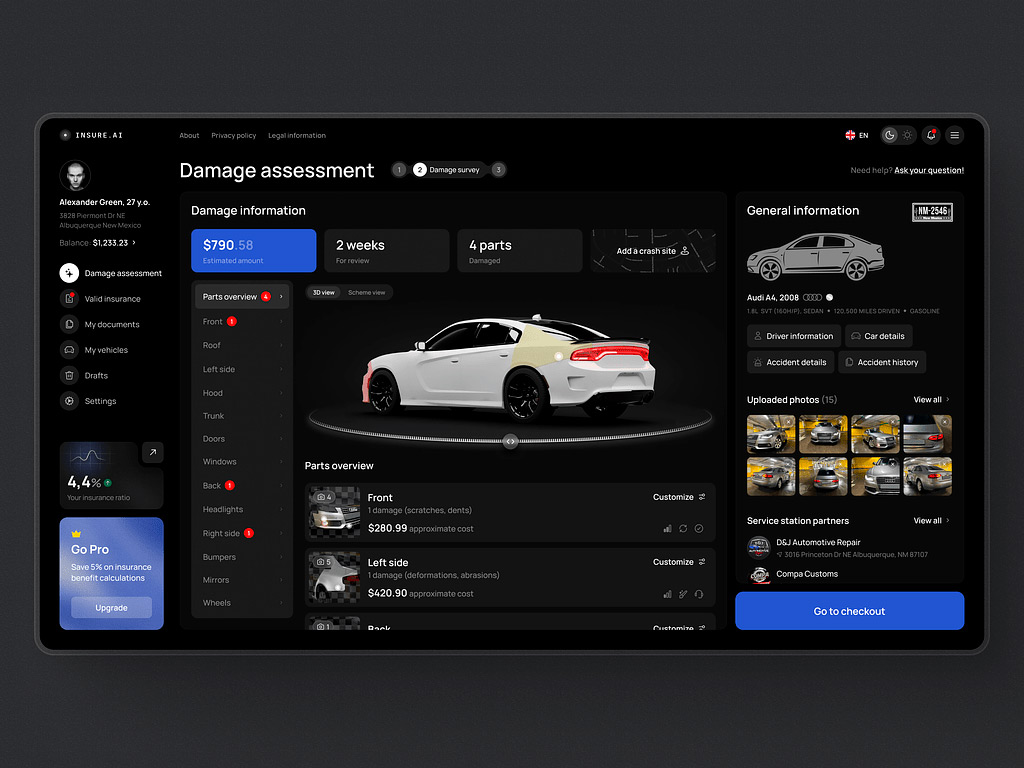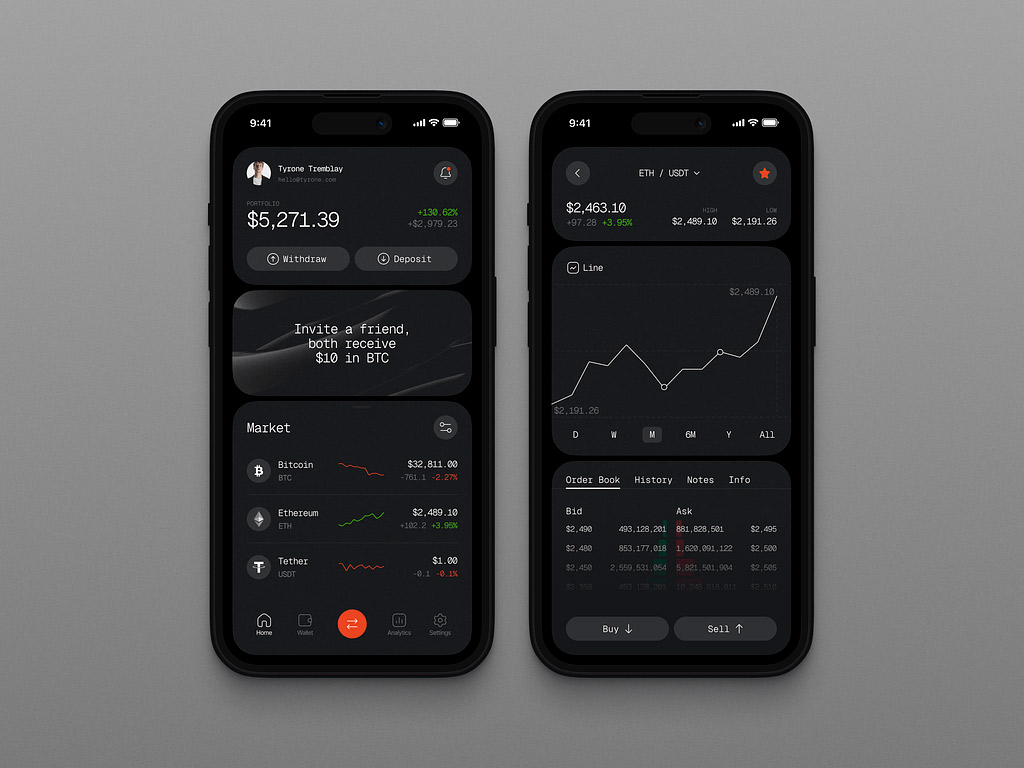Ever wondered why developers lean more toward certain tools when building websites and apps? Let’s think about it like this: when you’re picking out a new pair of shoes, what’s most important to you? Comfort, reliability, and ease, right? Well, it’s the same for developers– they prefer frameworks and libraries that make their job easy and convenient. That’s why the best tools out there for web development are the ones that simplify the process and make coding a breeze.
But here’s the thing: before jumping into coding, there’s a big decision to make– which platform to use. When it comes to choosing between React and Next.js, it can be a bit confusing.
So, here’s where we come in: We’re here to help you figure out which tools are the best fit for your project. In this blog, we’ll introduce you to React vs Next.js, walk you through the difference between Nextjs and React.js, and talk about what’s good and not-so-good about each.
Let’s begin!

Team Management UI Design Concept by Shakuro
What is Next.Js
First and foremost, let’s understand what is Next.js.
Think of it as a supercharged tool that helps developers like you build incredible websites and apps with React. Made by Vercel, it’s a great option since it takes care of a lot of complicated stuff for you.
One of the benefits of Next.js is that it can make your website load super fast by doing something called server-side rendering. Basically, this means that instead of waiting for the whole website to load on your computer, some parts of it are already ready to go when you open it up. So, you get to see everything much more quickly. Sounds amazing, right?
Plus, Next.js also has this thing called static site generation. It’s kind of like making a bunch of copies of your website and storing them in different places so that when someone wants to see it, they can get it right away without having to wait for it to load.
What’s more? It comes with a bunch of handy built-in features, like automatically splitting up your code into smaller chunks so it loads faster, and making sure your website looks good on any device.
Overall, Next.js is perfect for developers of all skill levels, whether you’re just starting out or you’re a pro.
What is React
When it comes to the most common questions in web development, “What is React?” is at the top of the list. Let’s answer that for you!
React has become a major player in the JavaScript world. Developed by Facebook, it’s now one of the most popular tools for building websites and apps.
So, what’s the big deal? Well, React lets you create quick and sleek interfaces for all kinds of web apps, whether they’re single-page or multi-page. It’s open-source and flexible, giving you the freedom to build things just the way you want.
One of the major benefits of React.js is that it allows you to easily create reusable parts of a website, like buttons or menus, which makes building websites a piece of cake. And with handy tools like Redux for managing data and routing, the whole process becomes even smoother.
But here’s the thing: while React is fantastic for building, it can sometimes be a bit tricky to use, especially when it comes to handling complex applications and making changes to the code. That’s where frameworks like Next.js step in. They take the best parts of React and make them even better, offering a more structured approach to building your apps.
In the end, React is a powerful tool for creating websites and apps, but it’s important to consider the pros and cons before getting started.
And if you ever need a helping hand or some guidance, Shakuro is always here to assist you!
Difference Between React vs Next.Js
React and Next.js are both popular tools in the world of web development, but they serve different purposes and have distinct features.
Let’s break down React vs Next.js in simpler terms:
Nature:
- React: React is a JavaScript library for building user interfaces. It helps you create different parts of a website, like buttons or forms.
- Next.js: Next.js, on the other hand, is a framework built on top of React. It adds extra features on top, like server-side rendering (SSR) and static site generation (SSG).
Server-side Rendering:
- React: With React, your website is mainly built on the user’s browser. It means the browser has to put everything together each time someone visits your site.
- Next.js: Next.js does some of the work in advance, so when someone visits your site, they get what they need faster. This is called server-side rendering, and it’s like having your website prepared and ready to serve before anyone even asks for it.
Static Site Generation:
- React: React doesn’t naturally support making pre-built versions of your site.
- Next.js: With Next.js, you can make pre-built versions of your site. This results in ultra-fast page loads and improved performance, especially for content-heavy websites.
Routing:
- React: React does not have built-in routing capabilities. Developers often use third-party libraries like React Router to go from one page to another.
- Next.js: Next.js provides built-in routing capabilities, making it easy to hop from one page to another without getting lost.
Configuration:
- React: React requires additional configuration for features like server-side rendering and routing, which may involve setting up Webpack and Babel configurations manually.
- Next.js: Next.js comes with many features built-in, requiring minimal configuration.
So, while React is great for building interfaces, Next.js adds extra features to make your website faster, easier to manage, and more user-friendly.
On that note, let’s explore if Next.js is really better than React.

Mobile Banking App by Shakuro
Advantages & Disadvantages of React
Advantages of React.js:
- Reusable components:
React lets developers build reusable pieces of the user interface (UI), saving time and effort by avoiding repetitive code writing.
- Fast rendering:
React’s use of a virtual DOM makes updates to the UI faster and more efficient, resulting in smoother user experiences.
- Supportive community:
React has a large community of developers who share knowledge and provide support, making it easier for beginners to get started and for experienced developers to find help when needed.
Disadvantages of React:
- Complexity:
React can become complex, especially in large projects, making it challenging to manage state and data flow.
- Steep learning curve:
Learning React can be tough, especially for beginners, as it requires understanding concepts like component-based architecture and state management.
- Configuration challenges:
Setting up a React project with tools like Webpack and Babel can be daunting, especially for those new to web development.
Advantages & Disadvantages of Next Js
Moving on, here are the pros and cons of Next.js in detail.
Advantages of Next.js:
- Server-side Rendering (SSR) and Static Site Generation (SSG):
One of the most distinguishable benefits of Next.js over React is that it offers built-in support for SSR and SSG, enabling faster page loads, better SEO, and improved performance.
- Easy routing:
Next.js makes navigating between pages simple because it organizes pages based on files.
- Real-time updates:
With Next.js, you can update website content without rebuilding the entire site, keeping your content fresh.
Disadvantages of Next.js:
- Complex setup:
Setting up a Next.js project can be complicated, especially for advanced features like server-side rendering.
- Less flexibility:
Next.js might not be as flexible as other frameworks, meaning it could be harder to customize for specific needs.
- Performance overhead:
While Next.js improves performance, it can also add some overhead, so optimization may be needed.
- Limited community:
Next.js has a smaller community compared to other frameworks, which means fewer resources and support options.

AI Insurance Web Design Concept by Shakuro
Is Next.Js Better Than React
When talking about the advantages of Next.js over React, then it all boils down to the kind of project you’re working on and how easy these tools are to use:
Next.js is known for being simpler to use because it requires less code than React. It has built-in features that make tasks like server-side rendering and routing easier, which can save time and effort for developers.
React, on the other hand, is great for building big, complicated web applications with lots of moving parts. It’s flexible and powerful, so it’s perfect for handling complex tasks like managing data and handling user interactions.
If you’re working on a big, complex project with lots of dynamic content, React might be the way to go. But if you’re building a simpler website or following the JAMstack approach, where performance and simplicity are key, Next.js could be a better fit.
Keeping that in mind and to make sure you have all the information you need, let’s take a closer look at the strengths and weaknesses of both React and Next.js.
In the end, whether you choose React or Next.js depends on your project needs and what feels right for you. Each has its own perks and challenges, so take your time to weigh them carefully before jumping into your next web development project.
At Shakuro, we’re here to simplify web development for you. With our personalized approach and expertise, we’ll guide you every step of the way, ensuring your project turns out exactly as you want it. Get in touch with us today and let’s create something amazing together!

Crypto App Design Concept by Conceptzilla
FAQs
- Can Next.js replace React?
No, Next.js cannot replace React entirely. Instead, Next.js complements React by adding features like server-side rendering and routing, enhancing its capabilities for certain types of projects.
- Is Next.js on top of React?
Yes, Next.js works with React. It adds extra features such as server-side rendering and static site generation to React, making it even better for building fast and search engine-friendly websites.
- Should I learn React or Next.js first?
It’s best to begin with learning React before moving on to Next.js. React teaches the basics of creating user interfaces, making it easier to grasp the more advanced features of Next.js.
- Can I use Next.js for big projects?
Absolutely! Next.js is a great choice for big projects. Its built-in features, like server-side rendering and static site generation, make it efficient and scalable, perfect for handling complex applications.
